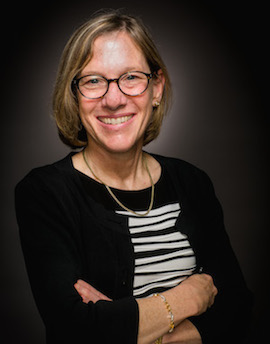 I had the pleasure of presenting teaching awards to six outstanding faculty members at the final CAS faculty meeting of 2015-16. The recipients represented a range of professorial rank, years of experience, and scholarly field–from James Uden, assistant professor of classical studies, who received the Gitner Award for Distinguished Teaching, to H. Eugene Stanley, William Fairfield Warren Distinguished Professor and professor of physics, chemistry, biomedical engineering, and physiology, honored with the Dean’s Award for Excellence in Graduate Education. When I read the citations out loud, I was transported to that beginning-of-the-semester feeling I used to have as a student when I anticipated with excitement the courses I was about to enroll in. And, as a teacher myself, I was inspired by the passion the recipients bring to their subjects and share with their students.
I had the pleasure of presenting teaching awards to six outstanding faculty members at the final CAS faculty meeting of 2015-16. The recipients represented a range of professorial rank, years of experience, and scholarly field–from James Uden, assistant professor of classical studies, who received the Gitner Award for Distinguished Teaching, to H. Eugene Stanley, William Fairfield Warren Distinguished Professor and professor of physics, chemistry, biomedical engineering, and physiology, honored with the Dean’s Award for Excellence in Graduate Education. When I read the citations out loud, I was transported to that beginning-of-the-semester feeling I used to have as a student when I anticipated with excitement the courses I was about to enroll in. And, as a teacher myself, I was inspired by the passion the recipients bring to their subjects and share with their students.
There’s a lot of attention now on new models of active learning and student-centered teaching–and that conversation is extremely useful for us at BU as we continually work to invest students in their learning. Whatever terms we use, these six faculty members are providing excellent examples for the rest of us of ways to engage students in the classroom and beyond. Amy Appleford, associate professor of English and in the Core Curriculum, and recipient of the Frank and Lynne Wisneski Award for Excellence in Teaching creates a “brilliant atmosphere of collaborative learning” in her highly participatory classes—and shares her knowledge about teaching in pedagogy workshops for first-time graduate teachers. Kathryn Spilios, lecturer in biology, received the CAS Award for Distinction in First-Year Undergraduate Education for, among other things, reconceiving the entire first-year laboratory curriculum as an inquiry-based experience. James Uden’s students write diaries as Romans as part of Introduction to Roman Civilization. Sarah T. Phillips, associate professor of history and recipient of the Neu Family Award for Excellence in Teaching, has developed a course for freshmen in which they work as hands-on archivists with centuries-old objects, manuscripts, and diaries. This is active learning in action.
Each of the two recipients of the Dean’s Award for Excellence in Graduate Education– Gene Stanley, mentioned above, and Daniel O. Dahlstrom, John R. Silber Professor of Philosophy–is a leading light in his field. Gene and Dan are extraordinarily productive scholars who influence their respective fields in significant ways. But what they are being honored for now is their graduate teaching, their mentoring of graduate students (and a huge number of them) through the dissertation writing process. These two men cause me to reflect on the feedback loop between research and teaching. They have not skimped on graduate education in order to focus more heavily on their own research. Rather, they provide evidence that research and teaching can complement each other, that working with graduate students can keep our thinking fresh and energize our research.
I also had the honor of announcing three faculty winners of advising awards, an extremely important role we play with students. I will write more on the subject of advising in a future note, as this topic merits its own in-depth treatment.
I am inspired by these extraordinary teachers and advisors, and I think you will be too. I encourage you to read the full award citations. And thank you to all of our great teachers at CAS—if it weren’t for you, we wouldn’t inspire as much enthusiasm and hard work from our students, and wouldn’t have such successful alumni. Thank you for a great year!